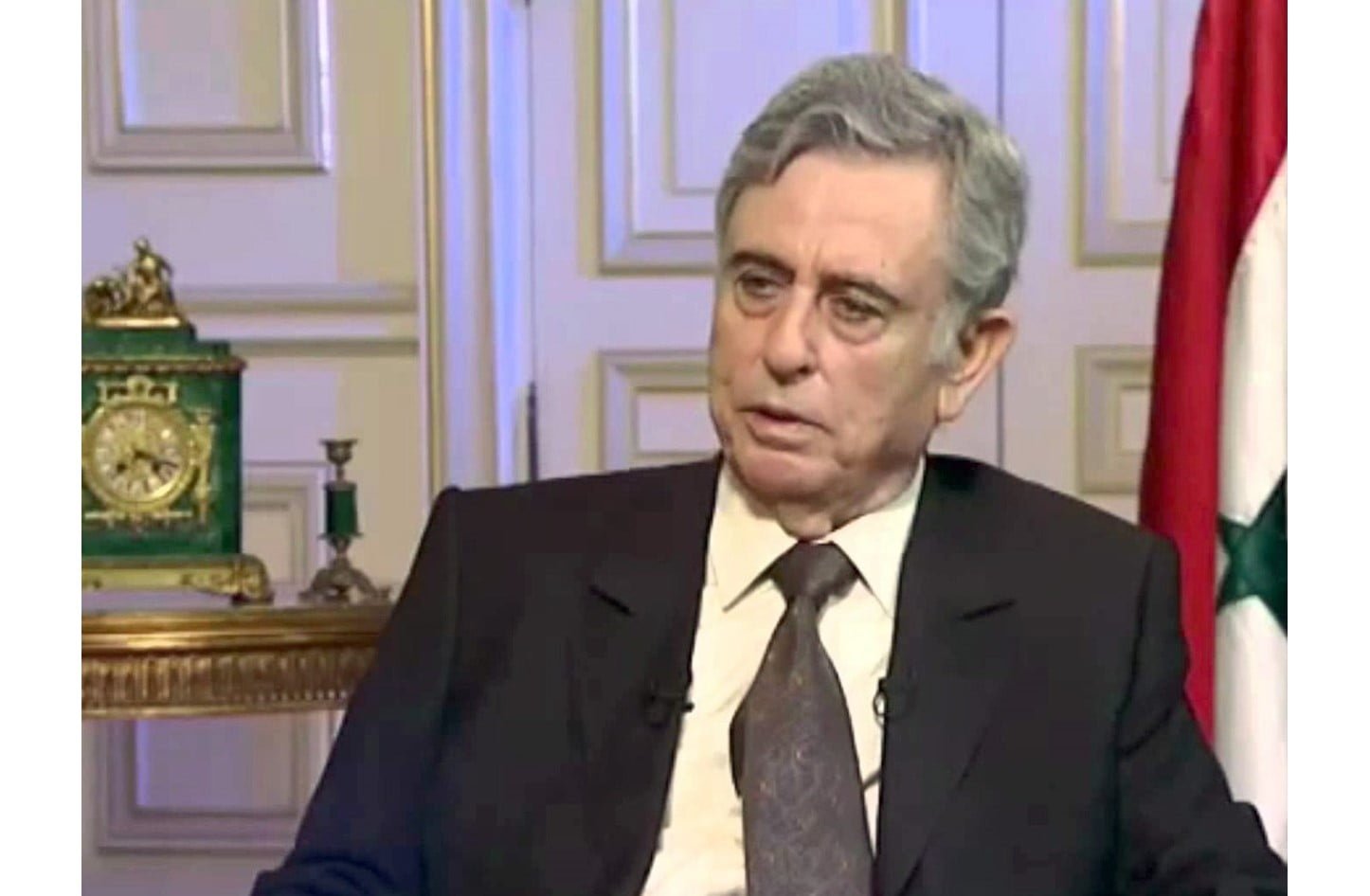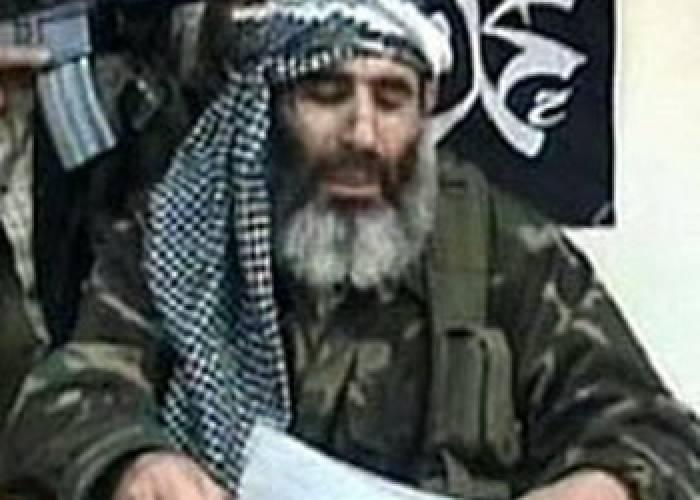PARIS, April 24 (UPI) — Former Syrian Vice President Abdel-Halim Khaddam, now out of favor with President Bashar Assad’s regime, spoke at length from his exile in Paris with UPI International Editor Claude Salhani. He cautioned that Damascus wants to thwart the international tribunal investigating the murder of former Lebanese Prime Minister Rafik Hariri and intends to re-enter Lebanon. Excerpts from the interview:
Q: There were elections in Syria on Sunday. What is your opinion of these elections?
A: We should not refer to it as elections. The nature of the regime turns these elections into a theater. Article 8 of the constitution stipulates that the Baath Party leads the society and the country’s institutions. The results of the elections are preset because the Baath Party always gets more than 51 percent of the total seats. Some seats are allocated to members of the National Front and only 30 percent of seats are reserved for independents. And even the independents are not really independent. So this is not an election as elections are understood in other countries. The results are known a week to 10 days in advance.
Q: Are there truly free elections in the Arab World?
A: You said you wanted to talk about Syria, not the Arab world.
Q: Are you saying that the Syrian parliament is a rubber stamp?
A: In the final analysis, that rubber stamp is less than a rubber stamp. Sometimes some of the deputies say something that is contradicting to some ministers. Then the speaker of the house calls them to his office and asks them to withdraw their remarks or their political indemnity is lifted and they may be prosecuted.
Q: You are opening an office in Washington. What do you hope to accomplish by doing so?
A: The aim of the office is to inform. It will be there to present the views of the opposition, first to the Syrian people and then to inform the U.S. administration and American institutions.
Q: To confront the regime in Damascus you have entered into an alliance with the Muslim Brotherhood. Is this not potentially dangerous? If you manage to get rid of the current regime, the Muslim Brotherhood would want to establish an Islamic state in Syria.
A: That is not the aim of the opposition. The goal is to establish a democratic state in Syria. The principles have already been established and agreed upon with the Muslim Brotherhood as part of the pact of the National Salvation Front.
Q: During the Iranian revolution in 1979 all forces opposed to the shah united in their efforts to bring him down. Yet when Ayatollah Khomeini assumed power, he got rid of all other opposition groups. Do you not fear the same thing happening in Syria?
A: First of all it’s a different situation. Syria is a moderate country. The Syrian people are moderate. The Muslims are moderate and the Christians are moderate. The Syrians are not religious extremists. The first president of the parliament after independence was a Christian. This is the second-highest-ranking position after the president. The social structure in Iran is very different than Syria’s.
Q: How much do you think that President Bashar Assad is aware of what is going on in Syria?
A: He is aware of everything.
Q: So would you say he is in control?
A: All the security services are directly linked to him.
Q: Do you agree with President Bush’s policy of not talking to Syria?
A: It is not for us to set the policy of the United States. We always encourage all countries not to engage in a dialogue with the present Syrian regime because we feel the present regime is suffocating the Syrian population.
Q: What do you make of U.S. House Speaker Nancy Pelosi’s visit to Damascus?
A: I don’t think it will have much effect on the current situation. The regime in Damascus has set out a political strategy. This strategy is tied to Iran. And it is tied to the situation in Lebanon. Pelosi’s visit and that of others is not going to alter Syria’s policy.
Q: What do you think Syria really wants?
A: The first objective of the current regime is to remain in power. If you ask me what the Syrian people want, I would say the Syrian people want to get rid of the regime.
Q: So in your opinion, what do you think President Assad is trying to accomplish? What are his political aspirations?
A: First to prevent the establishment of the international tribunal (to judge the case of the assassination of former Lebanese Prime Minister Hariri) and then to return to Lebanon.
Q: Let me ask you a question you must have been asked many times: Who killed Rafik Hariri?
A: My personal belief is that security apparatus that is very close to Bashar Assad carried out the assassination, but we will have to wait for the outcome of the investigation.
Q: Do you think the international tribunal will take place?
A: Definitely.
Q: Do you see a role for yourself in leading Syria should there be a change of regime in Damascus?
A: I am not looking for a leading role. All I want is for Syria to be free and the establishment of true democratic institutions. And for the Syrian people to be able to choose their leaders.
Q: What would be the first thing you would do if you were in power?
A: We would enact a new election law, we would free all political prisoners, we would allow political parties, freedom of the press, we would organize elections within six months, we would invite all exiles to return and draft a new constitution.
Q: If you were in power would you be willing to discuss peace with Israel?
A: We fully support the Arab League initiative (put forward by King Abdullah of Saudi Arabia).
Q: Do you think that peace in the Middle East is possible while President Bush is in office?
A: Since I became foreign minister in 1974 we always heard that we should wait for the next (U.S.) presidential elections. The question is not about elections but about U.S. policy regarding the Middle East.


